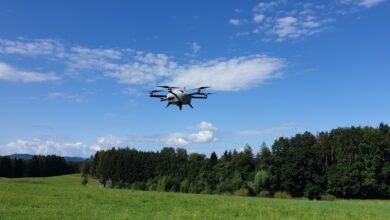Meta to Release a Major WhatsApp AI Update (August 2024)

Imagine a world where messaging apps are not just communication tools, but powerful assistants that improve your daily life. Messaging platforms are no longer just about simple text exchanges. They have evolved into powerful tools that use artificial intelligence (AI) to improve productivity and communication.
One of those apps, for example, is WhatsApp, which has transformed from a simple messaging and calling app to an AI-driven creative platform.
The market for smart chatbots is expected to rise $19.9 billion by 2023. Meta has been gradually integrating AI features such as idea generation and language translation into WhatsApp in recent months to meet this demand.
This process started with the introduction of LLaMA (Large Language Model Meta AI) in February 2023, which marked a significant advance in the AI capabilities of the entire suite of apps.
Since then, Meta has upgraded its AI capabilities and provided regular updates. As WhatsApp gears up for another major AI update, let’s first take a look at its current features and their benefits.
WhatsApp AI features
WhatsApp’s current capabilities are powered by Meta AI’s open-source Llama 3.1 405B model. This model has 405 billion parameters, an increase of 335 over the previous version. The AI is available directly in the app and offers a variety of functionalities designed to streamline tasks and improve user interaction.

Here’s a closer look at some of the key features:
1. Get information
WhatsApp AI can provide answers to various questions, from math problems to coding questions. For example, travelers can use it to obtain local information while booking a stay within the app.
2. Text summary
It can summarize texts including personal notes, documents and long messages. This feature is useful for professionals who need quick access to the most important information.
3. Creative help
WhatsApp AI can help with creative tasks such as writing, brainstorming and idea generation. For example, you can create a content calendar and share it directly.
4. Translation
Another feature of WhatsApp AI is its ability to overcome language barriers. It can translate text between different languages, making conversations easier.
5. Image generation
The WhatsApp AI image generator feature allows images to be created from text prompts. Users can quickly create images based on different descriptions.
Benefits of WhatsApp’s AI features
These AI features provide multiple benefits for both regular users and businesses:
1. Convenience
By integrating AI directly into WhatsApp, users can access these powerful features without leaving the app. This convenience improves the user experience by keeping everything within a single and familiar interface.
2. Efficiency
WhatsApp AI can quickly provide and summarize information, significantly improving productivity. This means faster correspondence, streamlined information collection, and a smoother workflow for teams and businesses.
3. Creativity
WhatsApp can help solve problems and generate new ideas by encouraging creativity. This can stimulate innovation and lead to faster idea generation in various domains, from marketing to sales.
4. Language assistance
The translation capabilities are invaluable for breaking language barriers. For example, this feature can help companies talk to and sell to people with different native languages.
5. Fraud and spam detection
A robust feature of WhatsApp AI is flagging fraudulent calls and messages. Identifying and blocking potential scams increases security and protects individual users and companies from scams.
6. Improved messaging
In addition to its practical applications, WhatsApp AI enriches the user experience by providing entertainment value. The ability to generate fun and engaging content, such as unique images or creative responses, adds an extra dimension to any messaging experience.
After understanding the benefits of WhatsApp AI, let’s explore the details of the upcoming update and its potential impact.
Upcoming WhatsApp AI update: What to expect
The next major update to WhatsApp AI will introduce voice activation. This feature will mainly benefit users who prefer voice commands over typing.
This updatewhich is currently rolling out through the Google Play Beta program for Android version 2.24.16.10, allows users to interact with the AI hands-free. The AI will prompt users to re-record commands as necessary, ensuring accurate responses and minimizing errors.

In addition to voice activation, upcoming updates include AI avatars similar to those on Instagram and Snapchat. These avatars allow users to create personalized representations of themselves, adding more interactivity to the platform.
Additionally, WhatsApp is developing features that will allow users to quickly edit photos and use AI to detect objects in images. This improves the texting experience by making it easier to create and share images without leaving the app. It can also help parents use AI to easily explain images and objects to children.
Another exciting development is the ability to share voice messages with the chatbot. This feature allows users to interact with the AI in a more natural and conversational way, narrowing the gap between human and machine communication.
Given the upcoming developments, there are also problems that WhatsApp must solve.
Current limitations and challenges
While the progress is impressive, WhatsApp needs to address some limitations and challenges.
One of the main problems is the limited accuracy of the AI. For example, it can simply answer mathematical problems incorrect and has problems providing it optimal travel routes. This flaw is present in all Meta AI products, highlighting the need for continuous improvement in computing and reasoning capabilities.
Trust issues with AI and privacy concerns also hinder widespread adoption. A lot of Users are wary of using AI out of fear that their personal data could be used to train AI models without their consent. Additionally, existing biases in the training data can lead to suboptimal results, further reducing user confidence.
Another challenge is the AI’s inability to understand linguistic nuances, such as colloquialisms and regional dialects. This limitation can lead to miscommunication and reduce the effectiveness of the AI in certain use cases, i.e. translations.
Finally, a key challenge is that WhatsApp’s AI features are not yet fully known in many countries, especially in regions with limited awareness and understanding of AI and its benefits.
This lack of awareness is another major barrier to WhatsApp AI adoption; a barrier that WhatsApp needs to address through localized awareness campaigns.
Future perspective
As technology evolves, we can expect even more innovative features. Future updates will improve the user experience and help WhatsApp become the market leader in AI chatbots. In the near future, users can look forward to a more intelligent, efficient and personalized messaging experience.
Discover Unite.ai to learn more about AI chatbots.






